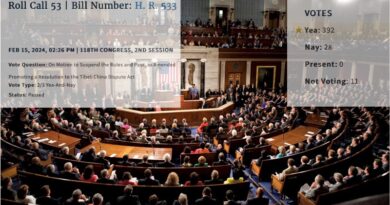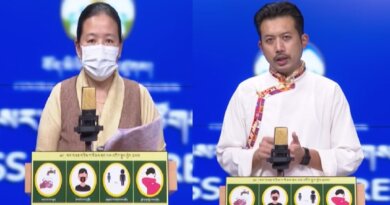The deafening silence on China’s human rights abuses
Sophie Richardson, Aljazeera February 2, 2018
Where is China headed in 2018? President Xi Jinping promised “world peace” for the new year – but his 2017 track record suggests otherwise. Remember the singular stain of the July death of 2010 Nobel Peace Prize winner Liu Xiaobo, surrounded by state security? Many condemned China’s conduct, but such interventions are fewer and further between these days. Increasingly, abusive Chinese authorities are garnering international support for their principles and policies.
In a single December week, the Chinese Communist Party hosted an international political forum in Beijing attended by representatives of political parties from democracies including New Zealand and the United States, seemingly unbothered that their hosts run an authoritarian, one-party state.
China’s Ministry of Foreign Affairs and the State Council Information Office held an international symposium in Beijing on human rights – attended by United Nations Office of the High Commissioner for Human Rights, a UN body that, unlike two dozen other UN agencies, is systematically denied the ability to operate in China.
And China held another global information technology summit on connectivity – attended by Tim Cook, the CEO of Apple, who in the US argues hard for privacy rightsbut in China lauds Beijing’s plans for a “common future in cyberspace” despite rampant censorship and electronic surveillance.
The term “normalising” is in heavy use these days, typically to mean the implicit or explicit acceptance of problematic behaviour. In diplomacy, it means two countries establishing formal diplomatic relations.
But it’s now also a perverse hybrid in contemporary international politics: individuals and institutions from parts of the world where human rights are generally protected aren’t just cosying up to, but also increasingly publicly praising, their Chinese counterparts – while failing to defend the principles and institutions that underpin their very existence. In doing so, they enable a whitewash of an abusive regime, one with global aspirations to change and set the rules of modern political life.
While it’s true that many people across different realms – academia, business, politics – have, over the years, pushed the Chinese government to adopt international human rights standards and end its persecution of peaceful critics, few now stand against Beijing’s intransigence. Many now choose to engage on Beijing’s terms, even when doing so is perverse and even harmful to their interests. Will Apple still thrive if China’s vision of state control of all sources of information and the use of artificial intelligence to monitor all citizens’ behaviour becomes a reality?
Those who participate in these kinds of gatherings invariably insist that it’s better they engage than not: after all, the logic goes, who else will set out different or higher standards on everything from democratic governance to corporate social responsibility?
But, increasingly, they simply don’t bother to set out or defend those standards. Did any of the political party conference attendees publicly dissociate themselves from their hosts’ closing statements praising President Xi’s leadership, or offer up publicly available remarks reflecting concern about the lack of elections or multiple political parties in China? No. Did anyone at the human rights conference make a public statement, while in China, about the death penalty, or torture by police? No.
While Chinese authorities host these substantively through-the-looking-glass gatherings and proclaim international support for their vision, increasingly they exploit openness elsewhere to do the same, often through state organisations like the United Front Work Department. Australian politicians have been discovered receiving political donations from Chinese businesses.
The Chinese authorities have been limiting access of human rights groups to the country. Police from Cambodia to France have capitulated to pressure from Chinese law enforcement or Party “discipline” officers and handed over allegedly corrupt fugitives without any semblance of due process. Universities struggle with ferocious complaints from Chinese diplomats about whether the institutions may describe Taiwan as an independent country, or have the Dalai Lama as a commencement speaker.
The question for democracies or businesses isn’t whether to engage: it is how to engage in a principled manner. This means treating China like many governments treat US President Donald Trump when he makes outrageous statements or adopts retrograde policies. Democratic leaders condemn Trump’s remarks about “fake news” – but don’t condemn China for its censorship or propaganda. They criticise Trump for his hostility towards the UN, but have nothing to say on China’s efforts to weaken the institution.
It is time for new standards to reverse these highly abnormal relationships with China. Forty years into China’s “reform era”, Beijing has made clear it’s not moving on democracy, a free press, or an independent legal system, though courageous people continue to push for these at considerable personal risk. If powerful outside voices mindlessly engage, they not only stab these brave people in the back – they may also find themselves obliged to dance to the tune of a highly repressive government.

Sophie Richardson is the China director at Human Rights Watch.



